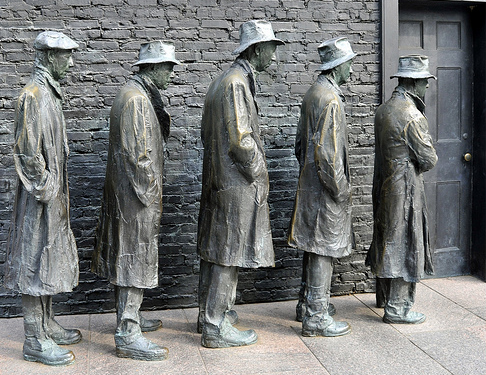Despite how mainstream media tends to paint the picture, unemployment is not only a graduate’s concern. Far from it. The number of job seekers aged above 50 have increased by 53% over the past year. 170,000 have been looking for work for more than 12 months. Horrific stats. And behind each number stands a worried individual – and usually, a family as well.
Even the highest quality mature-aged candidates could need careful guidance to earn an interview, let alone a placement, for two key reasons:
1. The hiring process has seen drastic changes in recent decades. Mature-aged candidates who previously enjoyed constant employment often need assistance in navigating through an unfamiliar recruitment process. An example, is of course, the candidate’s CV. Dated formats, focuses, and language have few fans amongst today’s employment managers.
2. And then there’s the additional hurdle: strategies need to be developed for both CV screening and interview stages that combat ugly stereotypes that promote unofficial policies of ageism. For example:
“Older candidates are inflexible and set in their ways…”
If a candidate is able to pinpoint areas where previous weaknesses have been systematically and proactively addressed, a strong degree of flexibility and openness for change have been successfully demonstrated. In addition to addressing the stereotype, the candidate has also clearly highlighted an advantage older candidates often have of their younger counterparts: a greater degree of self awareness and a more developed level of emotional maturity.
“Older candidates can’t be trained…”
A candidate who can demonstrate ongoing and successful training will quickly dispel such nonsense. If one is unable to prove their commitment to constant career development, the candidate should consider exploring the vast world of adult education. Through classroom based training or eLearning programs, candidates can develop new skills that are verified by certification. It must be noted that eLearning has the added benefit of demonstrating technical know-how. Regardless, by taking such proactive steps, a candidate demonstrates both an ability and hunger to learn new concepts.
“Older candidates have lost touch with their profession or industry…”
Mature-aged candidates can expect to be tested on this one. Have they kept up with industry trends and developments? If a candidate can demonstrate in the affirmative, they’ll dispel such concerns. What industry events has the candidate recently attended? What trade journals have they subscribed to? And for bonus points, has the candidate made solid contributions to relevant online industry forums via blogging, LinkedIn or Quora?
“Older candidate are technical dinosaurs…”
Oddly enough, this stereotype can even render mature-aged candidates useless for even the least technically-demanding positions.
Mature-aged candidates are best advised to utilise new-generation CV tools that will firmly dispel any unjustified perceptions concerning their irrelevancy in the modern workplace. Furthermore, if the technologically enhanced CV can boast IT training certification and links to social networks, there’s little chance such a candidate will be unjustly red-flagged, like so many other capable mature-aged candidates.
“Generally speaking, older candidates have no advantages over younger candidates…”
While each individual should be judged on his own merits, studies have found that mature-aged candidates commonly share beneficial attributes.
They have been known can hit the ground running, require minimal workplace supervision, and boast a career’s worth of relevant experience and genuine contacts. Older candidates are more reliable, and are proven to stay with their eventual employer for more years than younger candidates.
“Older candidates are angry and bitter that they have to look for work again…”
Presentation is key to dispel this unfair notion. Such candidates need to position themselves as positive, enthusiastic, and capable – without a trace of arrogance. The candidate is excited by the opportunity, and have a tremendous set of skills and attributes to offer the organisation.
Quality recruiters know how to build and sell a candidate. And with the right strategy, a mature-aged candidate can not only win the placement, but change dated attitudes too-many employers have towards older jobseekers.



